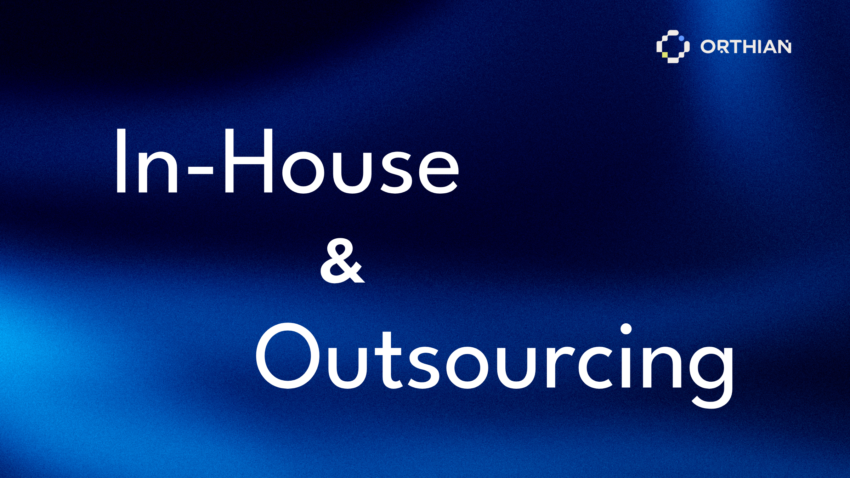Discover how SQL powers data access, reporting, and business operations across industries and how Orthian uses it to build reliable, scalable systems.
In today’s data-driven world, trendy technologies and AI frameworks may come and go but SQL (Structured Query Language) remains a constant. Behind every dashboard, report, or data-backed decision is a SQL query.
Whether you’re running an e-commerce platform, managing internal data, or analyzing thousands of transactions in a supply chain, SQL is the backbone that makes your data accessible, actionable, and structured.
This article will explain what SQL is, how it works, and why it’s still essential in modern digital infrastructure.
1. What Is SQL?
SQL stands for Structured Query Language, a domain-specific language used to manage and manipulate relational database systems (RDBMS). With SQL, you can:
- Retrieve data (
SELECT) - Insert new records (
INSERT) - Update existing data (
UPDATE) - Delete unwanted records (
DELETE)
Unlike general-purpose programming languages, SQL is declarative: you describe what you want from the data, and the engine determines how to get it.
SQL is supported by popular relational databases like:
- MySQL
- PostgreSQL
- Microsoft SQL Server
- Oracle Database
2. Essential SQL Commands You Should Know

At Orthian, we embed these queries into APIs and dashboards to transform raw data into real-time, actionable insights.
3. Use cases for SQL
SQL is the driving force behind business intelligence. Across industries from finance and logistics to retail and healthcare, SQL is essential for:
- Internal Data Systems: Managing HR, operations, inventory, or order flows
- CRM/ERP Platforms: Organizing customer and supply chain data
- Reporting Tools: Generating financial and performance dashboards
- Custom Backends: Storing and securing user data in scalable systems
- Data Pipelines: Extracting, cleaning, and transforming data for machine learning or analytics
SQL isn’t tied to a single industry, it’s the universal foundation for structured data.
4. SQL vs NoSQL: When to Choose What?
SQL (relational) and NoSQL (non-relational) databases serve different needs:

Many modern systems even use hybrid architectures, combining both SQL and NoSQL depending on the data layer.
5. Optimizing SQL
Poorly written SQL queries can slow down your entire system. That’s why at Orthian, we apply industry best practices to ensure high performance:
- Use indexes to speed up queries
- Avoid deeply nested subqueries where possible
- Normalize database schemas without sacrificing speed
- Cache results for frequently accessed queries
- Monitor query logs to detect and resolve performance bottlenecks
Optimization turns SQL into a strategic advantage, not just a tool.
6. SQL in Orthian Projects
SQL plays a critical role in many of the solutions Orthian delivers across diverse industries. From internal platforms to user-facing applications, we rely on SQL to organize and scale data efficiently and securely.
Examples include:
- Order tracking systems for retail businesses
- Behavioral analytics platforms for digital products
- Operational management tools integrating data across departments
Each implementation is custom-designed, SQL is never used generically, but tailored to fit business goals and data architecture.
Conclusion
SQL isn’t just for data engineers or backend developers, it’s for anyone who wants to understand, manage, and unlock the value of structured data.
In a time of rapid digital transformation, knowing SQL means knowing how your business actually runs beneath every report, dashboard, and decision.
If you’re building a digital product or managing large volumes of structured data, Orthian can help you design a SQL-based system that’s clean, scalable, and future-ready.
Check out more knowledge from Orthian below:
What Is JavaScript? Explore Power Behind the Modern Web
Low-Code/No-Code: Empowering Application Development for Every Business






